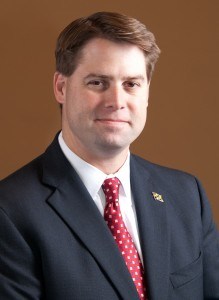Lobbyists for AT&T and Verizon are an integral part of Mitt Romney’s campaign for president, reveals a new report exposing K Street involvement in presidential politics.
“K Street Lines Up for Romney,” produced by CQ’s First Street Intelligence, shows one candidate above all others with an open door policy to money and assistance from some of the nation’s largest corporations: Mitt Romney.
Romney has never been a registered lobbyist, but he seeks advice and contributions from more lobbyists than any of the other candidates, and has a long list of lobbyist supporters, advisers, and contributors. This select group of Washington insiders is quietly positioning themselves to benefit from a Romney presidency. With their dollars, advice, and endorsements, K Street definitively lined up in support of one candidate – Mitt Romney.
Among those corporations are both AT&T and Verizon, who either employed lobbyists now working directly with the Romney campaign or work with corporate-connected money bundlers, who raise enormous campaign contributions on behalf of the Romney campaign.
“The two biggest telephone companies, Verizon and AT&T, also stand to gain from a President Romney,” according to the report.
For example, money bundlers at Ogilvy, DLA Piper, and Ernst & Young are all directly connected to Verizon Wireless.
AT&T hired Romney Campaign Adviser Lobbyists Ronald Kaufman (working for Dutko) and Vin Weber (Clark & Weinstock).
Some of the reports highlights:
- Ten current and former lobbyists are directly affiliated with the Mitt Romney campaign as advisers and staffers. These lobbyists have represented 256 clients who paid their firms over $88 million since 2004. (Lobbyist Campaign Officials)
- 16 registered lobbyists are acting as bundlers to Romney’s campaign. These lobbyists have represented 324 organizations and a combined $196.9 million in lobbying expenses since 2008. (Lobbyist Bundlers)
- In 2011 bundlers and advisers to the Romney campaign represented 174 organizations and $54.7 million in lobbying expenses.
- 332 lobbyists have donated to a current GOP candidate in 2011. Romney dominates the field, receiving 304 contributions. (Lobbyist Contributors)
- Two lobbying firms are positioned to gain from a Romney presidency: (Scorecard)
- Dutko employs lobbyists that are Romney advisers, bundlers, and contributors
- DLA Piper has multiple lobbyists that have contributed heavily to the Romney campaign.


 Subscribe
Subscribe






